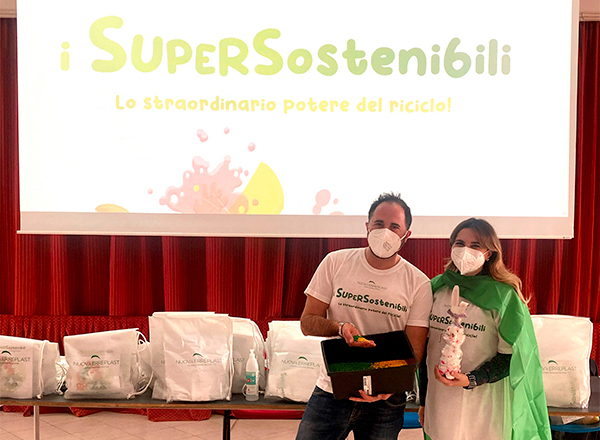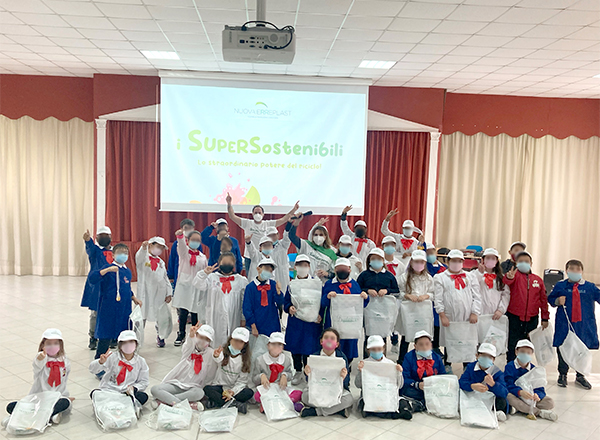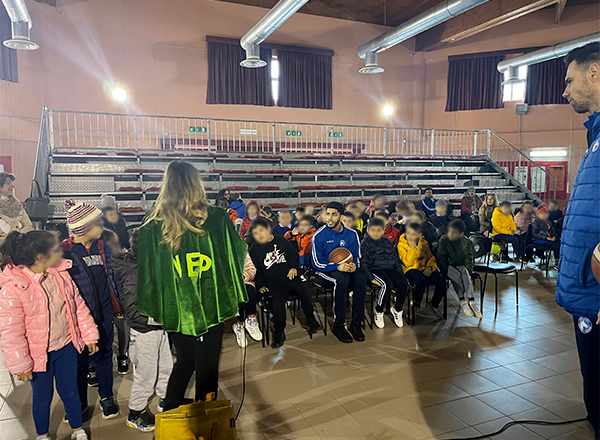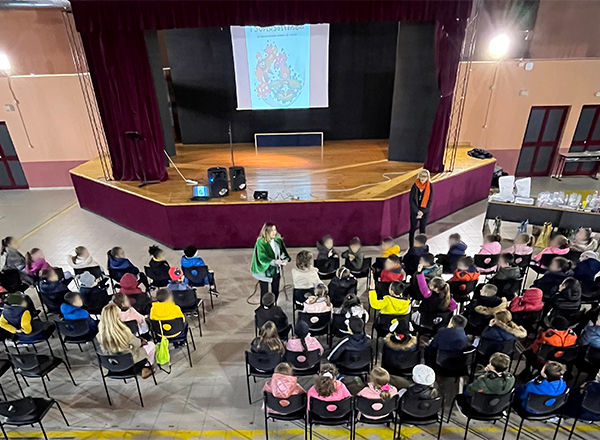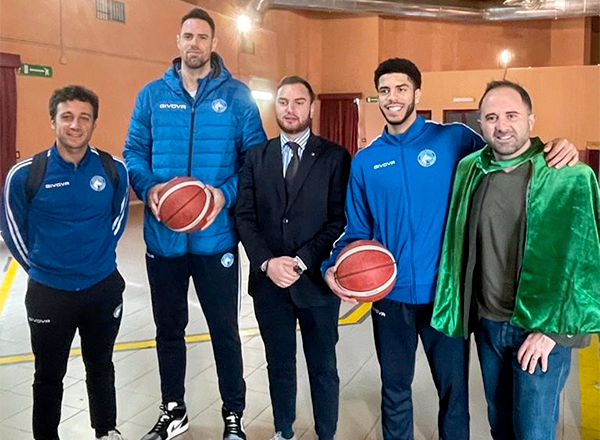“The Super Sostenibili”
The Extraordinary Power of Recycling
In order to educate future generations about environmental sustainability, New Erreplast, a leading company in the production of sustainable packaging, promotes a training activity regarding the separate collection, reuse and reduction of waste, for school years 2021/2022, and 2022/2023.
This initiative, completely free, is aimed at primary school children in the territory of the Campania region.
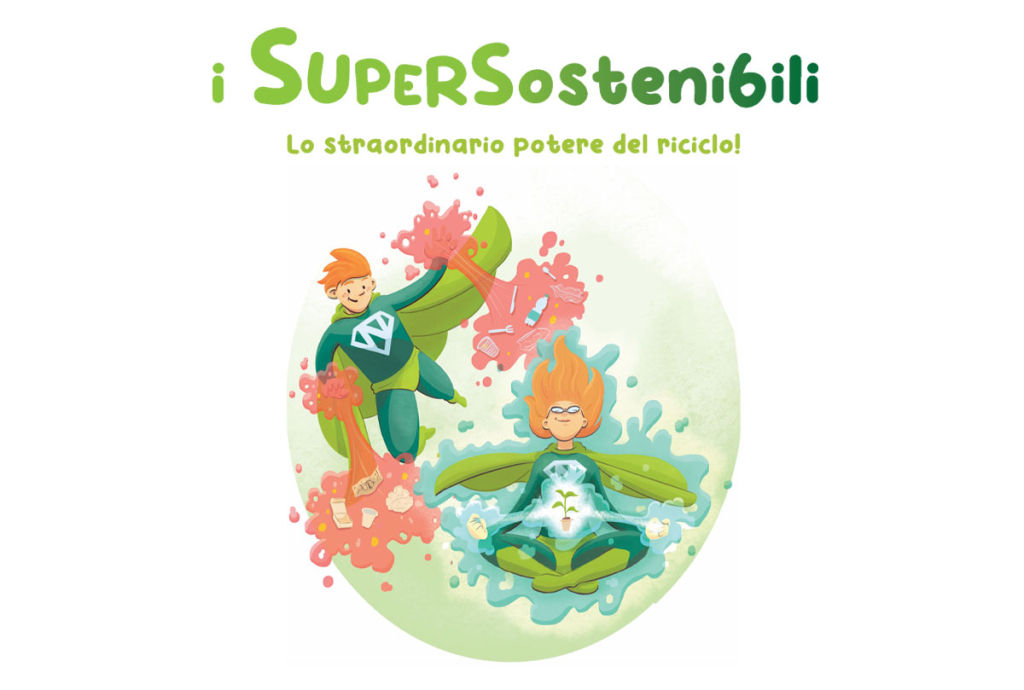
THE PROJECT
“Sustainability as a way of life”
In order to successfully propose important environmental and social issues such as separate collection, the active involvement of young people must be stimulated, but subsequently assisted; targeted work in the classroom to recall the good practices introduced with recreational activities.
TARGET:
The teaching activity is addressed to the classes of the primary school of 2 , 3 , 4 year.
We propose several paths on the issue of waste, to be developed as follows:
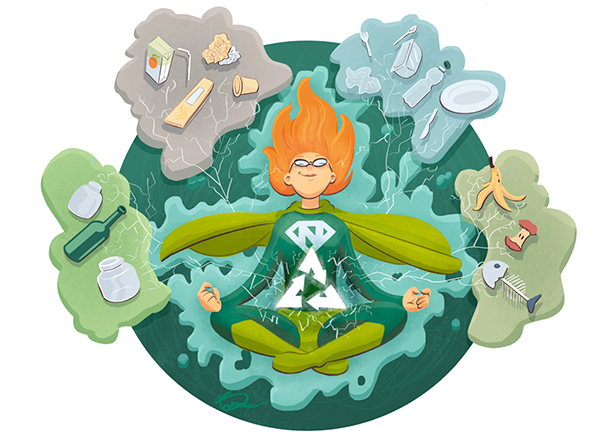
Step 1 – Separate Collection
“What is a rejection?”
Starting from this simple question, the animator collects the ideas, definitions and perceptions that children have of rejections, highlighting how, in the common sense, the rejection is considered something dangerous, ugly, dirty and must therefore be removed.
The purpose of the activity is to ignite a debate and unmask unexpected clichés on the concept of “rejection” and give guidance on:
– How separate collection works.
– The importance of re-use and recycling.
– What each of us can do to control waste production.
The interventions, agreed with the teachers in Phase 1, include a theoretical and a laboratory part, with an always experimental approach, through these two types of activities:
Involve children with activities related to TRASH ART, a true contemporary art form in which industrial waste, parts of broken mechanisms and other household waste are used to create art objects. Today it has acquired maximum relevance and is one of the most widespread methods of education and creative “struggle” against environmental pollution.
Or in the simplest, but nevertheless important and formative game of the recognition of materials and the different CATEGORIES OF WASTE.
Step 2 – We know Plastic
The students are guided to discover a world so close but so little known: plastic objects, often unfairly demonized, accompany us throughout our day, but often we do not know where they come from, what happens to them, how they differ and whether they are dangerous for the environment. In the theoretical part of the talk will be deepened the following topics:
– We and plastics: the daily use of this material, especially with the function of packaging.
– What differences between plastics? different functions and different materials.
– Why is it dangerous? The danger to the environment when the object becomes waste.
– Case studies: Nuova Erreplast’s investment in a fully compostable packaging.
The laboratory activity involves the education to the reuse of plastic objects.
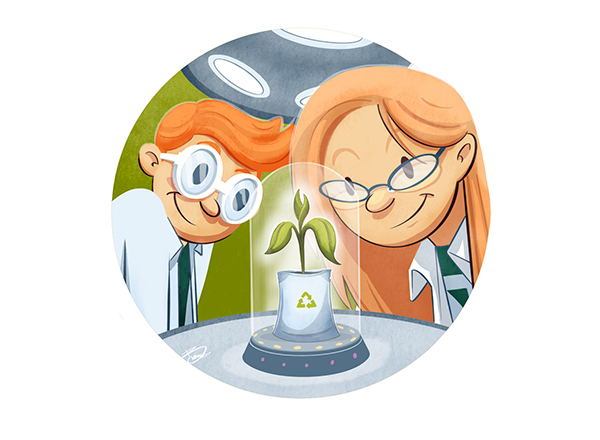
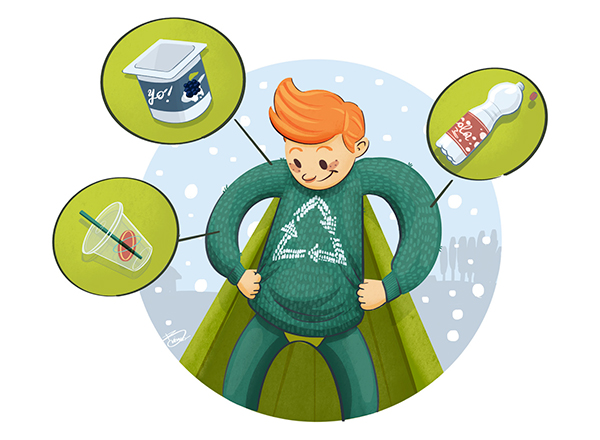
Step 3 – Educational Booklets for Children and Interactive Games
It is proposed to create a folding-game, rich in images, illustrations and colors, to be opened in various steps to discover the content.
This information support will guide students to discover the world of waste in a schematic, direct and very absorbing way. The theme of the brochure could be the introduction to the waste collection system, with particular reference to the correct use and recycling of plastic.



